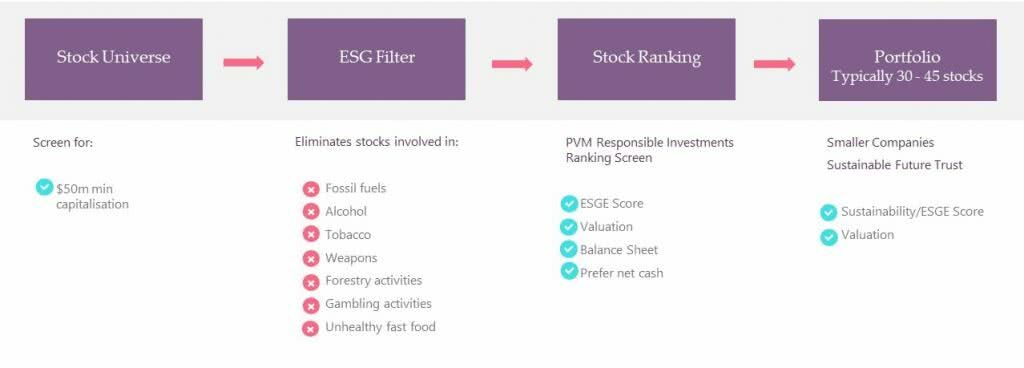What is screening?
An investment screen is a general term used for the exclusion or inclusion of stocks based on the exposure to certain characteristics or factors. These factors can range from metrics on valuation, the sector or industry, performance, earnings quality or yield. Typically, in an ESG screen, companies with exposure to ‘problem’ or ‘sin’ industries are excluded or companies are selected based on their positive ESG ratings.
How does screening relate to ESG?
It is common for ESG funds to use the process of negative screening. This is a relatively simple method and ensures no or reduced exposure to ‘problem’ industries. For example, funds may exclude companies with more than 10% revenue exposure to fossil fuels, tobacco, weapons, alcohol or gambling. The benefits of a negative screen include the ease of the approach and that the screen can be directly matched to customer values. However, a negative screen may fail to exclude companies that operate in ESG friendly industries but are poor ESG performers. Additionally, given that there may be some toleration of exposure to ‘problem’ industries, the risks could still be present in the portfolio.
Positive screening is the process of selecting the top ESG performers in the investible universe, or the best performing companies in each sector. The companies may be ranked using an external ESG score from a data provider, such as MSCI or Sustainalytics, or an internal rating mechanism.
What is our process?
In the Perennial Smaller Companies Sustainable Future Trust we use a negative screen as an ESG filter for eliminating problem industries in the investable universe. We then rank the stocks and use an internal positive selection process to find the best ESG performers.

Our negative screen excludes companies with exposure to:
- Fossil fuels
- Alcohol
- Tobacco
- Weapons
- Forestry
- Gambling
- Modern slavery
- Unhealthy fast food
One key difference of our fund is that we actively select positive ESG contributors. We seek & engage with companies that are making a positive contribution to a sustainable future. We have an internal “Environmental, Social, Governance and Engagement Score” for over 400 stocks which we use in our stock selection process.
We then invest in stocks in our three categories of ESG performance:
- Sustainable Future Enablers (~40% of the portfolio): companies that are making a positive contribution to creating a sustainable future. For example medical company PolyNovo, or NZ renewable energy provider Mercury.
- Engaged Improvers (~20% of the portfolio): these are stocks that are actively engaged in reducing ESG impacts or improving ESG outcomes. They may not operate in industries which you would expect strong ESG performers but are doing great things within their sector. For example, we hold Kathmandu and Cleanaway in this category.
- Positive ESG Scores (~40% of the portfolio): stocks that fall into this category conduct business taking into consideration ESG criteria or operate in ESG friendly industries; for example, ResMed and Bravura Solutions.
Both positive and negative screening has a place in ESG investing. Investors should be aware of the benefits and limitations of each approach and the screening process that the investment manager is using for stock selection.
Disclaimer: Please note that these are the views of the writer and not necessarily the views of Perennial. This article does not take into account your investment objectives, particular needs or financial situation.

